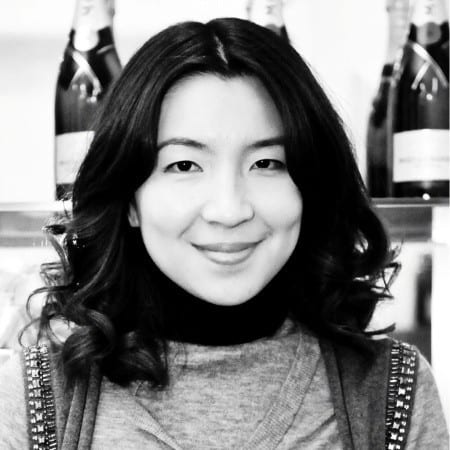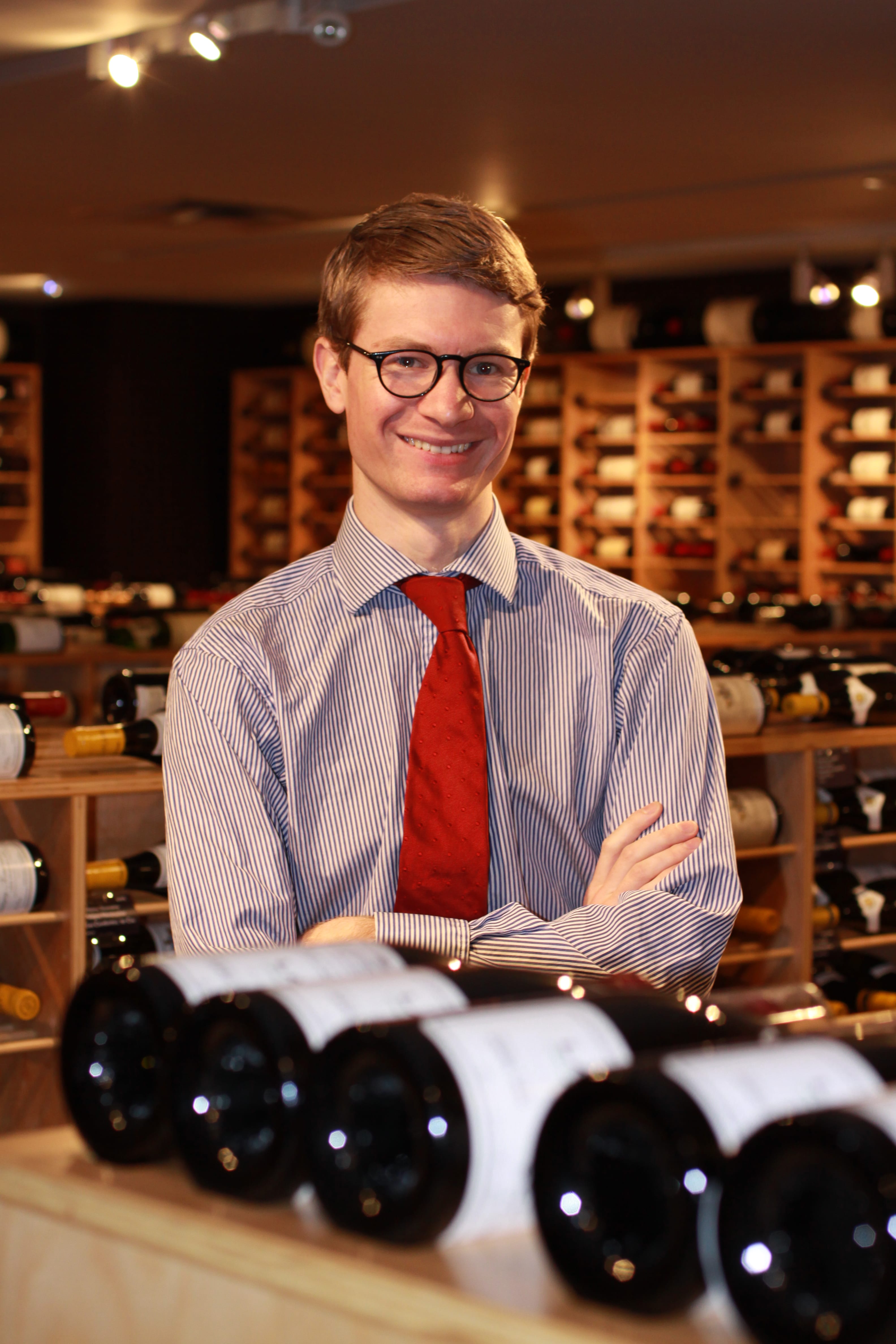From academic research to translating in the arts
By uczjsdd, on 2 August 2018
 Ingrid Chen has an MA in Comparative Literature from UCL, and she studied for a PhD in Humanities and Cultural Studies at the University of London. She left the PhD behind for a role in Sotheby’s, and is now Deputy Director, Head of Translation Department at Sotheby’s in Hong Kong. We managed to coordinate ourselves across time zones and have a chat bout Ingrid’s career journey. Here is what she told us:
Ingrid Chen has an MA in Comparative Literature from UCL, and she studied for a PhD in Humanities and Cultural Studies at the University of London. She left the PhD behind for a role in Sotheby’s, and is now Deputy Director, Head of Translation Department at Sotheby’s in Hong Kong. We managed to coordinate ourselves across time zones and have a chat bout Ingrid’s career journey. Here is what she told us:
What are you up to now?
I’m currently Head of the Translation Department at Sotheby’s. When Sotheby’s wants to promote Western art to a Chinese audience, the catalogue, the essays, and the condition report need to be translated into Chinese, and that’s what my team deals with.
I joined Sotheby’s in 2010, starting in London with customer service, because there was a lot of interest from Chinese collectors wanting to buy non-Chinese art. Then an opportunity arose to join the Hong Kong marketing department, working on copywriting and translation. I moved to Hong Kong, and since then the job has grown into a department with a seven-person team responsible for translating over 60 catalogues per year, as well as all the corporate materials to show our Chinese clients.
I don’t actually translate anymore in my current role. I oversee the team’s work, making sure it’s all consistent and there’s a Sotheby’s style to it.
How did you move from academia to your current role?
I did a Masters in comparative literature at UCL. I went on to Birkbeck’s London Consortium with the Tate Museum for a Masters of Research, and continued there with a PhD. During my early years of study I assumed I would stay in academia and become a lecturer and then eventually a professor. But in the second year of my PhD I started having doubts, wondering where else I might possibly end up. Because the London Consortium had lots of curators it sparked my interest in art, and I started attending gallery openings and auction previews. Through these events I met people in the art industry who said you don’t have to be an art historian to work in the sector. So I started to do part-time work in galleries.
I didn’t finish my PhD in the end. I became lost in my thesis and wasn’t sure if it was something I really wanted to do. It’s like a relationship, after a while I was kind of tired of it. And then towards the end of my PhD, when I was already in two minds about finishing it, the Sotheby’s translation job came to me. I took it as a sign from God saying this is your chance to decide whether you want to stay in academia or not. And I chose to come to Hong Kong.
What does a normal working day look like?
My day is divided into three different time zones. I start by picking up emails from New York. Then I’ll move on to what’s happening in Hong Kong, then later in the afternoon or evening I’ll deal with what’s happening in London.
On any given work day I might look at the seasonal auction calendar at what’s coming up and what needs to be translated. The material I receive will often be full of new terms I’ve never seen before, and that requires a lot of research, and we have an archive of technical terms involved in conservation and the painting techniques etc. which we maintain to ensure we use consistent Chinese terms.
My work also involves people management. It’s a seven-person team and the translators are at very different phases in their career, so they may come to me for advice, either translation or career-related, and I’m a head of department who always listens, so I will try to be a good listener and help them with their problems.
We have to follow tight deadlines and there’s a lot of communication with the Specialists, who are writing the descriptions and documents in English that we will translate into Chinese. The Specialists are experts and perfectionists, they are honing their craft, which is great, but if they’re late that will delay our schedule, so we all have to compromise in order to achieve the goal assigned to us. So there’s a lot of management, communication, and research in the role every day.
What are the best bits?
I have intimate access to incredible masterpieces. For example we’re selling a Modigliani in New York and it travelled to Hong Kong, so before anybody else sees it I got to examine it up close. That’s something you cannot do as a visitor in a museum. Also, when you go to a museum show you usually don’t see the back of the painting. But the back of the painting holds information; the provenance, the condition, the artist’s signature, maybe a dedication. Because we have to describe items in a condition report I get to see all of this. It’s like there’s a separate exhibition for us, we get to see other angles. So if you’re an art lover it’s a great job for you to look at a variety of different things, not just paintings: we have a very strong Chinese ceramics department here so they’re usually very kind and they’ll let us touch these amazing pieces in pristine condition. There’s a lot of hands on experience. And sometimes there are the weirdest things for sale, like dinosaur egg fossils or a skull of a mammoth.
Anything that interests our Chinese clients we need to become sort of an expert it in, and that’s fascinating and unpredictable. So I get to be a semi-expert in many different fields, which I think is why I chose to work for Sotheby’s in the first place, because in academia you have to focus and specialise, but I almost want to be a renaissance woman rather than specialising in any one thing.
It’s also great to be producing something tangible – I’m not just building a castle in the clouds, churning out something that doesn’t mean anything to anyone other than me, which I sometimes felt I was doing in academia. Every time I see a catalogue I feel like they are my babies, I have something to show for my work, I can say I made this.
And what are the challenges?
The communication. There are so many different parties involved in producing one catalogue or brochure and time difference can be a big issue. One of the disadvantages of being in Hong Kong is that if we want to communicate with our global colleagues either we have to come in really really early or stay really really late. There have been times, especially in my first year or two of working here where I was leaving the office at 1am in the morning because we were waiting for something from New York and we had to finish it before going to bed. The good thing is that these days with cloud technology you can do a lot of the work from home, but for me personally I still prefer to come to the office for my work, and I prefer to work early than stay very late.
Has your research experience been useful?
When I left my PhD my parents were saying that if I only did another year or two I could finish it, why was I leaving it behind? Part of the reason was at that point I feared all of the things I’d learned through the PhD would not be very useful in my future, so why had I spent so many years before that acquiring these skills?
But funnily enough, the further I’ve got into this job, the more I’ve realised that the research skills I acquired have been really useful for my current role. A lot of the phrases and terms I’m working with have never been translated into Chinese before, so I have to do a lot of research. For example, I didn’t know anything about African art, but today I’m working on an African sculpture and I have to research what it’s about and how I can best describe it and its historic context. So research skills can be transferred into many different jobs, and they’re invaluable to me here.
Also some of the theories I learned in my Masters are useful for understanding contemporary art. Now I’m in the workplace, theories are not just theories. When I’m reading something from an art critic or an art historian, it all comes together and makes sense. I’ve received compliments from my supervisors who’ve felt that my translation brings more depth than outsourcing to an experienced translator because I understand the style required – so it becomes more persuasive, it becomes more intellectual in a way, and I do try to make sure that everything that we translate into Chinese reads as elegantly and as knowledgably as possible. So I think having my PhD degree experience, though I didn’t finish it, in the end was very helpful to me.
What does the future hold?
That’s a question I’m asking myself at the moment. Sotheby’s have never had a translation department before, so I don’t have a mentor to tell me where this type of role could lead me. And there are not many similar roles in the art world or auction industry, so in a way I’m in a unique position, but I don’t know whether that uniqueness is a good thing or not! I’m hoping I’ll progress to more of a creative role because we do publish some magazines at Sotheby’s, so there may be opportunities to write things or become an editor, and decide the direction of the magazine for the Chinese audience. I’m also taking courses exploring digital marketing, content creation and management. So this or next year may be a turning point for me where I decide the next step.
Would I consider going back to academia? Maybe, after all of these years and the distance they’ve given me, maybe I can go back and finish my PhD.
What are your top tips for getting into this industry?
Think broadly when exploring options. Humanities grads often limit themselves to working in ‘traditional’ humanities graduate roles. But these days there are a lot more opportunities. For example content creation is a big deal right now. And people with a humanities background can often create great content.
Something I lacked when I was studying was business acumen, which has to be acquired by getting experience outside academia. You have to know what’s going on in the marketing world or in a certain industry. Reading the Financial Times or other relevant industry publications is helpful.
Build a portfolio of writing examples, so employers can see what kind of employee you will become. Don’t just say you will be a great translator or a great writer, provide evidence. Create a blog, show you are consistently building something that has become your personal brand.
Networking is crucial. I approached Sotheby’s about the work I started doing for them part-time. If you just blindly contact an organisation there’s a high chance they won’t get back to you. So networking is quite important. I met some people from Sotheby’s who recommended me. Large organisations will receive many CVs and applications, so if someone from inside the organisation whom the recruiters trust recommends you, it makes a big difference.
 Close
Close


